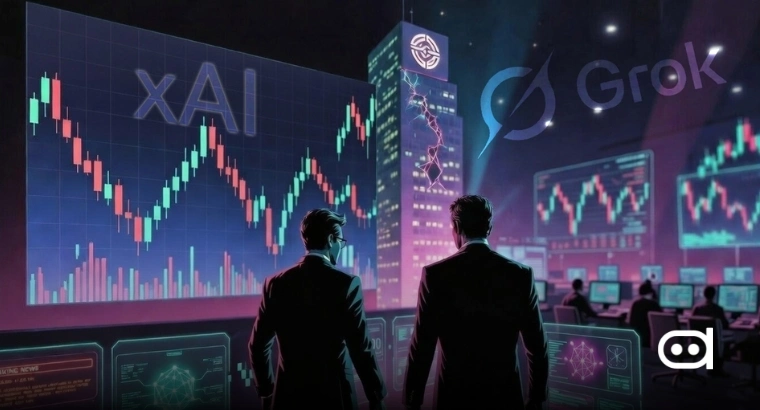
Key Highlights
- China is urging the U.S. to ease restrictions on high-bandwidth memory (HBM) chips as part of a potential trade deal ahead of a Xi–Trump meeting.
- HBM chips are important for powering advanced AI systems, but U.S. export bans have slowed China’s progress and targeted firms like Huawei.
- Easing restrictions could boost U.S. chipmaker profits but risks strengthening China’s AI and military capabilities.
China is asking the United States to relax strict rules on selling advanced chips used for artificial intelligence (AI). Amid the ongoing trade war between the US and China, this news would bring some relief for the AI industry, which is already booming.
According to a report from the Financial Times, Beijing wants this as part of a possible trade agreement ahead of a meeting between Chinese President Xi Jinping and former US President Donald Trump.
Chinese officials have reportedly told policy experts in Washington that they specifically want the US to ease restrictions on high-bandwidth memory (HBM) chips. These chips are vital for AI because they can process huge amounts of data very quickly, especially when paired with powerful AI graphics processors made by companies like Nvidia.
Why These Chips Matter So Much
HBM chips are at the heart of AI innovation. They are used to train and run complex AI systems, making them a key ingredient for any nation trying to compete in the global AI race.
The US restrictions on selling these chips have made it harder for Chinese tech giants like Huawei to create their own advanced AI processors.
Over the past few years, Washington has steadily tightened chip export rules, aiming to slow China’s progress in both AI and military technology.
While this strategy has limited China’s access to cutting-edge hardware, it has also reduced the ability of American chip companies to fully tap into one of their biggest markets.
The tension over AI chips is more than just a tech story. It is a high-stakes battle over who will lead in the industries of the future. China remains one of the world’s largest semiconductor markets, and despite the restrictions, US chipmakers still earn impressive revenue from Chinese buyers.
If the US agrees to ease these export controls as part of a broader trade deal, it could open the door for more cooperation — but also raise concerns in Washington about national security and technological dominance.
For now, both sides appear to be weighing the risks and rewards, with the outcome likely to send ripples through the global tech and crypto markets.
What China Wants
China’s request for the United States to loosen restrictions on advanced AI chips, especially high-bandwidth memory (HBM) chips, is the latest flashpoint in the growing tech rivalry between the two superpowers.
These chips are the backbone of modern AI, capable of processing huge datasets at lightning speed. This is crucial for China’s goal of matching — and eventually surpassing — the U.S. in artificial intelligence and next-generation technology.
The Financial Times reports that Beijing’s demand is part of a possible trade deal that could coincide with a high-profile meeting between President Xi Jinping and former U.S. President Donald Trump.
U.S. export bans have slowed its AI development by targeting tech giants like Huawei, effectively widening the technology gap. The restrictions, tightened in recent years, are designed to protect America’s lead in both AI and defense capabilities.
HBM chips, when paired with advanced AI processors from companies like Nvidia, are the engines that drive cutting-edge applications, from self-driving cars to advanced surveillance networks.
By keeping these chips out of China’s reach, Washington has slowed Beijing’s momentum but also cut into the profits of U.S. chipmakers, who rely heavily on China as it is one of the world’s largest buyers of semiconductors.
The consequences of this standoff could be felt far beyond the semiconductor industry. A deal might rewire global supply chains, influence cryptocurrency markets that depend on AI-driven analytics, and reshape the balance of power in industries like cloud computing and defense.
For China, access to HBM chips could boost its domestic AI ecosystem, reducing dependence on foreign technology. For the U.S., any compromise would require weighing short-term economic benefits against the long-term risk of losing its technological edge.
An earlier report suggests that China’s People’s Liberation Army (PLA) has begun integrating DeepSeek into its operations for non-combat applications.











